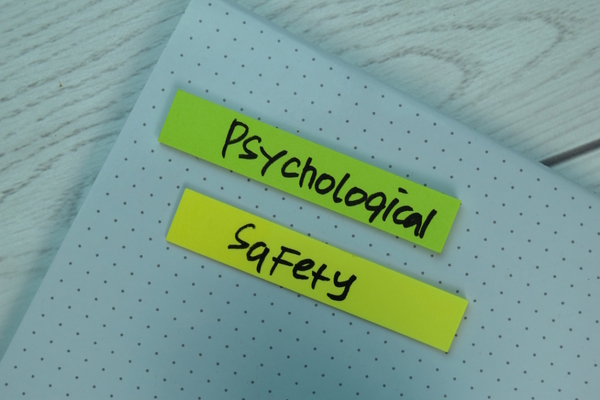Managing today's crisis of trust

Sam Richardson at Twilio explains why brands must rethink their approach to customer loyalty
Trust takes years to build but can shatter in an instant—a familiar adage that rings true across industries and relationships alike.
Trust has always been the foundation of strong brand-customer relationships. Without it, loyalty can fade, engagement declines, and reputations crumble. However, as we move further into 2025, trust is no longer a given—it’s something that must be continuously earned. When trust is broken it can be followed by scepticism and scrutiny across every interaction, promise, and claim a brand makes.
This growing cynicism signals the onset of a ‘trust crisis’—a tipping point where businesses must rethink how they build relationships with their customers. What was once an implicit agreement between brands and consumers—promises made, expectations met—now requires a more intentional approach.
Trust is fundamental; it has never been a marketing tool nor merely a feel-good sentiment. In reality it’s a business imperative that directly impacts customer retention, revenue, and shareholder value.
The erosion of consumer trust
A recent Forrester report predicts a 25% decline in brand loyalty by 2025, citing increased price sensitivity and economic pressures as key drivers. As consumers struggle with rising costs, they are more willing to switch brands in search of better value, making trust the ultimate differentiator.
The digital landscape has further complicated this issue. Misinformation, deepfake technology, and AI-generated content have blurred the lines between authenticity and deception, leaving consumers wary of what they see and hear. According to CMSWire, transparency, sustainability, and empathy have emerged as top priorities for consumers. They want brands to be open, accountable, and human in their interactions—yet many companies still fall short.
At the same time, data privacy concerns continue to fuel scepticism. High-profile breaches and opaque data practices have left consumers questioning whether brands truly respect their personal information. In an era where digital interactions dominate, trust in data security and ethical use of personal information is paramount. Without this, companies risk losing not only customers but also credibility in the market.
Restoring trust: the role of Chief Trust Officers
As trust becomes a strategic priority, businesses may need to rethink how they address it at the highest level. This is no longer just a marketing issue—it’s increasingly a boardroom conversation.
One potential trend we could see emerge is the introduction of Chief Trust Officers — leaders dedicated to navigating the complexities of consumer trust. Unlike traditional marketing or customer experience executives, these individuals would focus on embedding trust across all aspects of a business. Their role could span compliance, transparency, and ethical business practices, ensuring that every customer interaction—from data privacy to AI-driven personalisation—is built on integrity.
Measurement of trust indicators will be key to their role too. This could include measuring whether brands contact the customer when they said they would, or if they effectively secure customer data, for example.
While not yet widespread, the concept of a Chief Trust Officer reflects the growing recognition that trust must be earned daily. In fact, some organisations - across different industries - are making this role a reality. Companies exploring this approach could see benefits in integrating trust into their operational frameworks—whether through transparent data policies, ethical AI usage, or more human-centric strategies.
As consumer scepticism deepens, businesses that proactively embed trust into their decision-making may be better positioned for long-term success.
The ‘ecosystem of promises’
At its core, trust is built through consistency, reliability, and respect. Brands must return to the basics—keeping promises, following through on commitments, and designing experiences that feel supportive and dependable.
This is why businesses need to foster an ‘Ecosystem of Promises’—a dynamic system where trust is reinforced at every stage of the customer journey. When a promise is broken, whether through misleading advertising, poor customer service, or data mishandling, the entire relationship begins to unravel.
The brands that succeed in 2025 will be the ones that genuinely listen to their customers, anticipate their concerns, and proactively address them. It’s time to step into the consumer’s shoes and rethink how trust is built—not through words, but through meaningful actions.
Trust: a long term issue
Today’s trust crisis is not an abstract theory— it is already unfolding. In fact, only 50% of consumers had confidence in the brands they did business with in 2023. Companies that fail to recognise this shift will face significant consequences, not only in customer churn but in long-term brand reputation and financial performance.
Trust is no longer optional. It is the currency of modern business, and those who invest in it now will be the ones leading the industry forward.
Sam Richardson is Executive Engagement Director at Twilio
Main image courtesy of iStockPhoto.com and Violka08

Business Reporter Team
Most Viewed
Winston House, 3rd Floor, Units 306-309, 2-4 Dollis Park, London, N3 1HF
23-29 Hendon Lane, London, N3 1RT
020 8349 4363
© 2025, Lyonsdown Limited. Business Reporter® is a registered trademark of Lyonsdown Ltd. VAT registration number: 830519543





